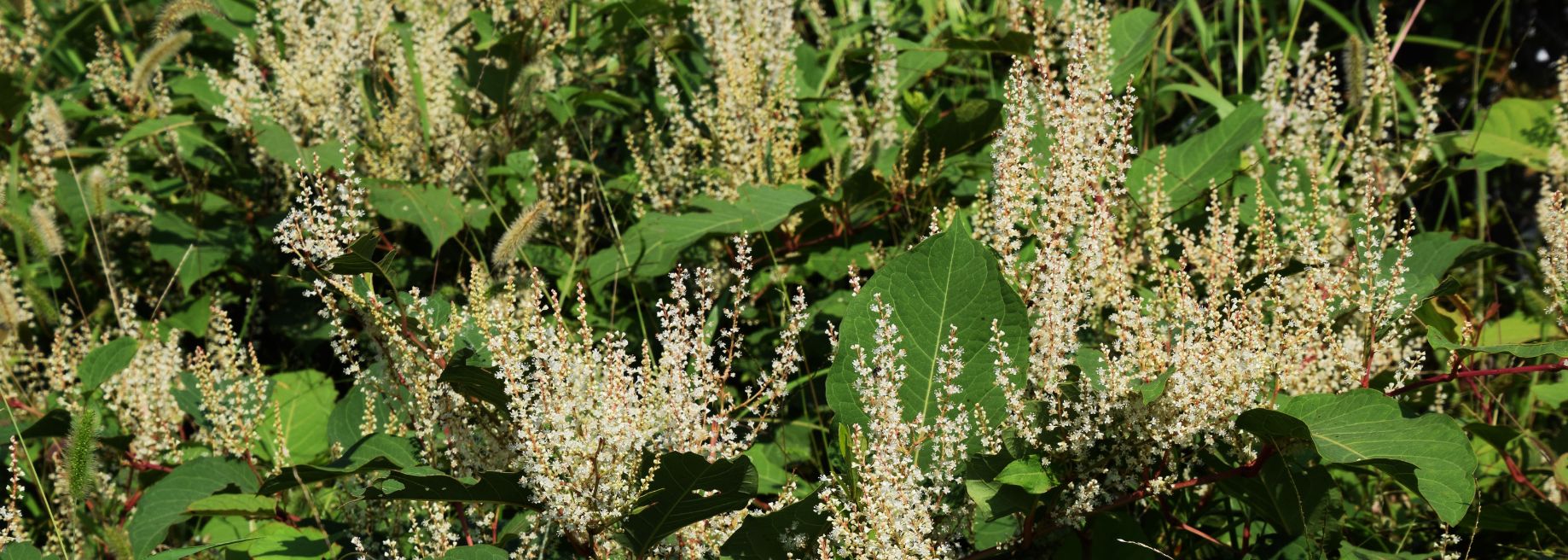
The problem with Japanese Knotweed
Published on 09/10/25
Click below for related articles
Reynoutria japonica... donkey rhubarb... itadori... Whatever you want to call it, Japanese Knotweed has become so pervasive across the UK that it’s developed into a major legal headache as well as an environmental one.
While some studies suggested that South Wales was the knotweed capital of Britain, significant outbreaks have been reported throughout the country, with Bristol being named the UK’s ‘knotspot’ capital this year. The environmental risks presented by this invasive plant species have been acknowledged since the 1970s, at least, but the legal ramifications have only really come to the fore over the past couple of decades.
A knotty legal problem
The Wildlife and Countryside Act first made it an offence to plant or allow Japanese Knotweed to grow in the wild, back in 1981. Despite various amendments since, criminal prosecution is unlikely and probably the least of the legal worries that have accompanied the itadori invasion.
Civil litigation has become more common in recent years, as homeowners have sought compensation for the nuisance that the weed undoubtedly causes and the cost of removing it, which needs to be carried out by professionals and can take years.
In 2022, Croydon Council paid a resident more than £15,000 to settle a legal claim after acknowledging that the Japanese Knotweed that had taken over her garden had spread from a neighbouring property, owned by the council.
Another claim that was first brought against Bridgend County Borough Council in Wales in 2020, came before the Supreme Court in 2024 after successive appeals over a fine legal point about the diminution of the value of property affected by the weed.
The cost of growth
While criminal prosecution may be unlikely there are two significant legal risks about which homeowners and landlords need to be mindful.
First and foremost, is the ongoing risk of allowing Japanese Knotweed to spread onto neighbouring land. It’s not against the law to have it on one’s own property, but there is a legal duty to take reasonable steps to prevent it spreading elsewhere. Failure to do so could result in legal action for the nuisance it causes and having it professionally eradicated.
The second risk only comes about when a property is sold because the seller is legally required to disclose the presence of Japanese Knotweed on the property.
Even if it isn’t causing any damage, the mere presence of the weed can affect house values by tens of thousands of pounds, and sellers could face claims of misrepresentation during the sale and be compelled to pay for the land to be professionally treated and other damages.
Here to stay
While scientists may be working on treatments to control the spread of Japanese Knotweed, it’s safe to say that reynoutria japonica and the legal headaches that come with it are here to stay.
Property owners need to be aware, not just if they are selling their home, but also to prevent the invasive species from spreading onto neighbouring land. The challenge can be greater for landlords who may not visit a property often and have to rely on tenants to spot the weed.
ARAG’s family, landlord and commercial policies all come with access to a legal advice helpline which can provide advice on all of the legal issues surrounding Japanese Knotweed.
Disclaimer - all information in this article was correct at time of publishing.
Related articles


